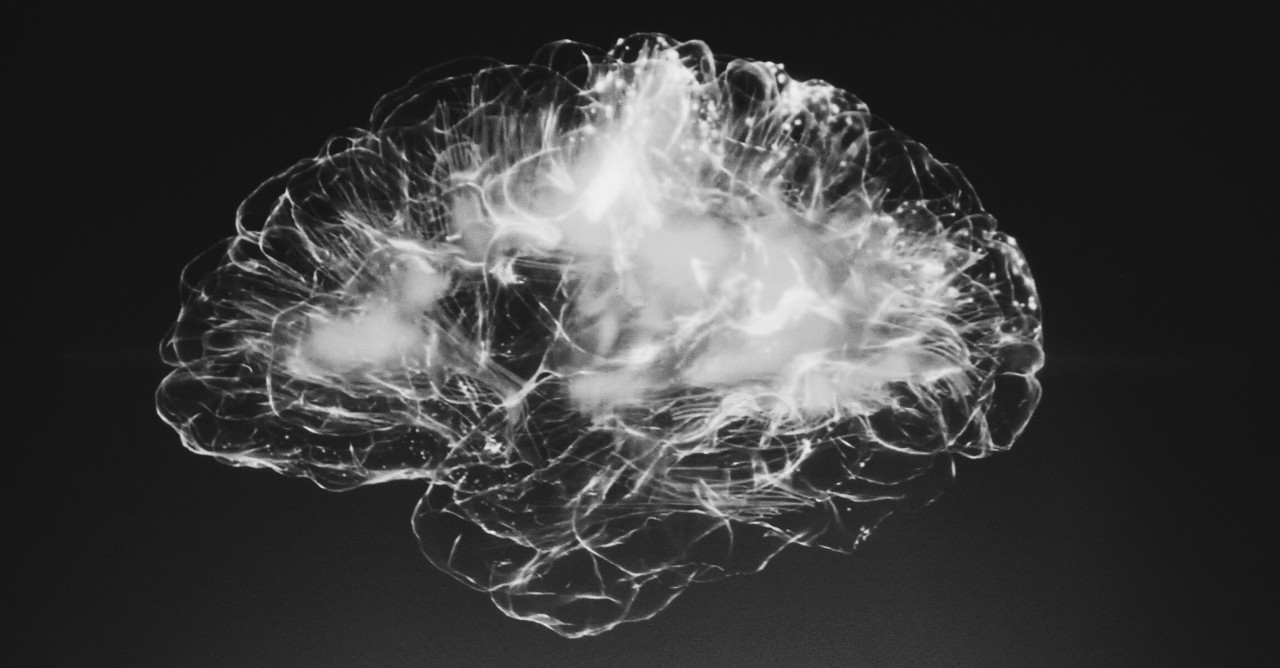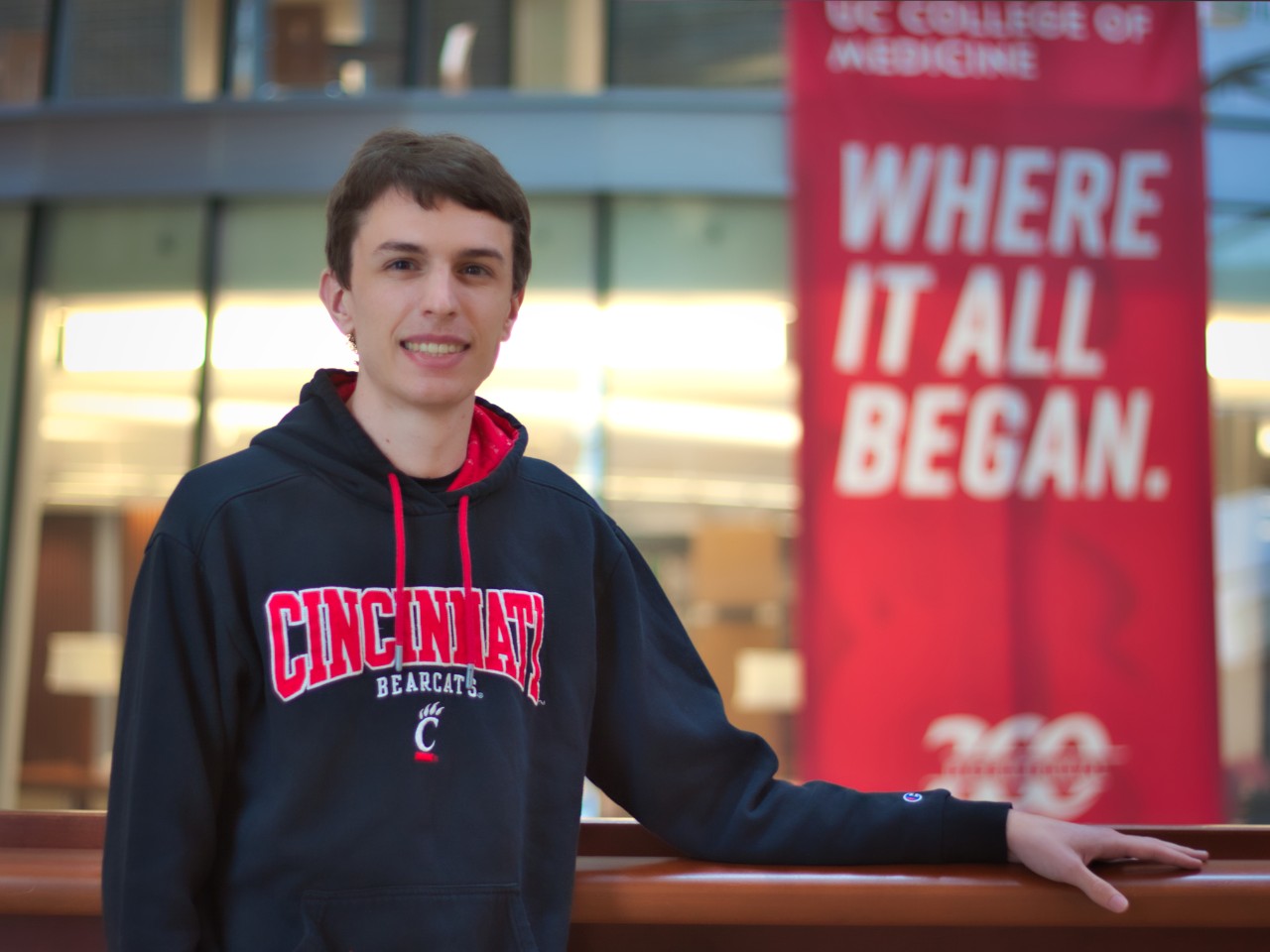
UC study: Signaling pathway in brain helps maintain health, prevent cognitive deficit
Research published in Nature Communications
A new study led by University of Cincinnati researchers sheds new light on the role of a signaling pathway in the brain to maintain health and prevent inflammation and cognitive deficits.

Agnes (Yu) Luo, PhD. Photo/University of Cincinnati.
UC’s Agnes (Yu) Luo, PhD, is corresponding author on the research, published June 21 in the journal Nature Communications, and focused on a signaling pathway called TGF-β that plays a number of roles depending on where it is located in the body.
Luo explained that signaling pathways in the body control different cell functions and require two components: a type of molecule called a ligand and a receptor that the ligand binds to and activates to start the signaling.
Prior to this study, it was known that the TGF-β signaling pathway was important in brain immune cells called microglia in maintaining their balance, but its role in maintaining cognitive function was largely unknown. Additionally, the precise source of the TGF-β ligand in the brain was also unknown.
Luo said the researchers used state-of-the-art tools and found for the first time that microglia make the TGF-β ligand in the brain to prevent neuroinflammation.
“Microglia cells are the innate immune cells of the brain, and what surprised us most is that they each make their own TGF-β ligand,” said Luo, professor and vice chair in the Department of Molecular and Cellular Biosciences in UC’s College of Medicine. “This TGF-β ligand binds to the receptor on the microglia cell itself, and they use this signaling to stay in homeostasis. This self-produced ligand binds to receptors on the cell’s surface to keep each cell in a constantly balanced, and not in an inflamed, state.”

A 3-D rendered confocal image shows a single TGF- β1 knockout microglia being activated while it is surrounded by normal microglia that do not have the gene deletion. Photo provided by Agnes (Yu) Luo.

Elliot Wegman, graduate student and study co-author. Photo provided.
While it was previously known that TGF-β signaling helps keep microglia in balance, Luo said it was not known that microglia make the ligands themselves in a “spatially and precisely controlled” manner carried out by each individual cell, a mechanism called autocrine signaling.
“You can think of these microglia cells as being, in a way, ‘selfish,’ as they only make the ligand to keep themselves in balance and not inflamed,” said graduate student and study coauthor Elliot Wegman. “This, thereby, provides a very precise mechanism to regulate local states of inflammation in the microenvironment of the brain.”
Using animal models, the team additionally found that when the TGF-β ligand is genetically deleted from microglia, it leads to global neuroinflammation in the brain.
“This suggests that the neuroinflammation in microglia is sufficient by itself without other causes to drive cognitive deficit,” Luo said. “We show the direct cause and link between these events.”
Moving forward, the team will investigate whether cognitive deficit can be slowed, stopped or potentially reversed by boosting the TGF-β ligand and signaling pathway in the brain under conditions where TGF-β signaling becomes compromised.
“We’re investigating whether restoring the TGF-β signaling pathway and revitalizing its signaling can then ameliorate disease-related or age-associated cognitive deficits,” she said. “The long-term goal of our research is to modify the brain environment to better support the survival of the neurons or promote repair of the brain after injury or damage.”
Impact Lives Here
The University of Cincinnati is leading public urban universities into a new era of innovation and impact. Our faculty, staff and students are saving lives, changing outcomes and bending the future in our city's direction. Next Lives Here.
This study was supported by National Institutes of Health grants (R01NS127074 and F31NS125930). Additional coauthors and collaborators on the paper include UC’s Alicia Bedolla, Max Weed, Kierra Ware, Anastasia Alkhimovitch, Igal Ifergan, Aleksandr Taranov, Joshua D. Peter and Lucas McClain; Messiyah K. Stevens of Vanderbilt University; Rosa Maria Salazar Gonzalez, J. Elliott Robinson, Aditi Paranjpe and Krishna M. Roskin of Cincinnati Children’s Hospital Medical Center and Nigel H. Greig of the National Institutes of Health’s National Institute on Aging.
Featured photo at top of an illustration of the brain. Photo/Alina Grubnyak/Unsplash.
Related Stories
Camp aims to empower children, teens who stutter
July 17, 2024
A one-week, evidence-based program for children and teens who stutter at the University of Cincinnati will teach kids to communicate effectively, advocate for themselves and develop confidence about their communication abilities. Camp Dream. Speak. Live., which is coming to Cincinnati for the first time July 22-26, began in 2014 at the University of Texas at Austin. The Arthur M. Blank Center for Stuttering Education and Research at UT expects to serve more than 2,000 children at camps across the United States, Africa, Asia and Europe this year.
UC archivist explores Troy’s invisible workers
July 17, 2024
UC Classics archivist Jeff Kramer examined the unheralded and largely uncredited role laborers played in the 1930s excavation at Troy in Turkey.
U.S. stroke survival is improving, but race still plays role
July 16, 2024
U.S. News & World Report, HealthDay and Real Health covered new research from the University of Cincinnati that found overall rates of long-term survival following stroke are improving, but Black individuals experience worse long-term outcomes compared to white individuals.
Collaborative pianist and vocal coach Kirill Kuzmin joins CCM’s faculty
July 16, 2024
UC College-Conservatory of Music Interim Dean Jonathan Kregor has announced the addition of Kirill Kuzmin to the college’s faculty of distinguished performing and media arts experts, researchers and educators. A Grammy-nominated collaborative pianist and vocal coach, Kuzmin begins his new role as Associate Professor of Opera/Vocal Coaching on Aug. 15, 2024.
My incredible first year at Cincinnati Law: Journey, reflections and highlights
July 16, 2024
Dean Haider Ala Hamoudi gives a progress report on his first year as dean of the College of Law.
Presidential challenge to UC: Join Ride Cincinnati to fight cancer
July 16, 2024
UC President Neville Pinto has again challenged every UC college and unit to send at least one rider to the September 14 Ride Cincinnati event to help fundraise for cancer research and cancer care. UC students ride free. Signup by July 31 for free UC-branded cycling jersey.
Pediatric ICU rates linked to housing quality, income, education
July 16, 2024
Healio highlighted research led by the University of Cincinnati and Cincinnati Children's Hospital's Carlie Myers that found a link between pediatric ICU admission rates and housing quality, household income and education.
Get to know CCM’s newest faculty/staff members and unit heads
UC’s College-Conservatory of Music will welcome a variety of new faculty and staff members to its roster of distinguished performing and media arts experts, researchers and educators this fall.
UC study: Long-term stroke survival improving, but racial disparities remain
July 15, 2024
New research from the University of Cincinnati published in the journal Neurology found long-term survival rates following acute ischemic strokes are improving, but Black individuals experience worse long-term outcomes compared to white individuals.
Students organize to shake up Parkinson's care model
July 15, 2024
University of Cincinnati student and Parkinson's Together founder Mallika Desai joined the Parkinson's Experience Podcast to discuss the nonprofit's origins and multidisciplinary mission to meet the needs of patients in their community.
